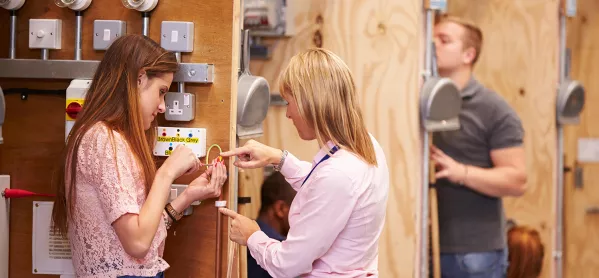The number of apprenticeship starts shows no sign of recovery, with a fall of almost a quarter compared to the same point last year.
Between August 2017 and January 2018 there were 206,100 apprenticeship starts compared to 269,600 starts at the same point last year, a decrease of 24 per cent.
The figures are the first to be posted since the one year anniversary of the introduction of the levy.
Businesses starting to wake up
The apprenticeship levy was introduced last April as part of the government’s ambitious plan to create 3 million apprenticeships by 2020.
Last month, during National Apprenticeships Week the skills minister Anne Milton said businesses were starting to “wake up” to the opportunities the reformed apprenticeship system.
She said: “Bearing in mind we brought in the levy, we launched the Institute for Apprenticeships and the new apprenticeship standards, this is a new environment. So it has gone quite well. That is not to say there are not things we need to change.
“I am really open-minded about the system. The only thing that matters to me is that the money is spent on what it is intended for.”
‘Extra tax’
Jane Gratton, head of skills at the British Chambers of Commerce (BCC), says many firms are finding it difficult to engage with the system because of its complexity.
“Most sectors and regions of the UK are facing skills shortages, and our research shows recruitment difficulties across the economy stand at near record highs,” she will tell a London conference on Thursday.
“For many levy payers it feels like a tax, or redirects funds set aside for other forms of workplace training. At the other end of the spectrum, the funding rules mean that small to medium sized enterprises (SMEs) are facing higher recruitment costs, and are unsure how and where to access quality training providers.”
She will add: “The aim of the apprenticeship levy is laudable, but its structure and implementation are obstacles to training the talent of tomorrow. Once the necessary reforms are made, a period of stability in the UK’s training system is needed to give businesses the certainty and confidence to engage and invest in the long-term.”
Increase in higher apprenticeships
A DfE spokesperson said the reforms to the apprenticeship system are about increasing the number of quality apprenticeships.
“We have recently seen an increase in the number of people starting on higher level apprenticeships, such as engineering and law, and on our new quality apprenticeship standards. These new apprenticeships are designed by employers themselves to meet their needs, and in a range of industries such as fashion, banking and defence.
“The apprenticeship levy is an important part of these changes to raise the quality of apprenticeships in this country, creating long-term, sustainable investment in training and education. Nearly 60 per cent of people starting on the new apprenticeship standards are levy supported, showing that levy payers are working well with the new system.”
Want to keep up with the latest education news and opinion? Follow Tes FE News on Twitter, like us on Facebook and follow us on LinkedIn




